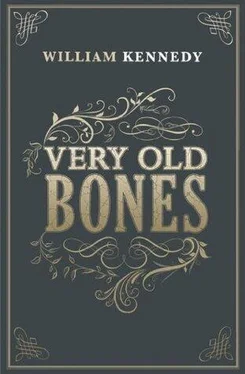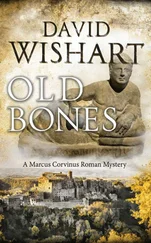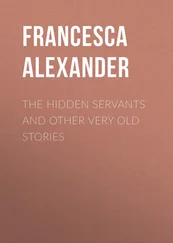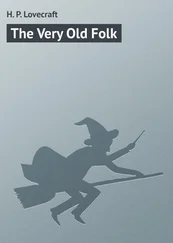P: All art is a lie.
O: Is your life a lie as well?
P: More often than not.
O: With the success of this art do you consider yourself an arrived man, a famous artist?
P: I will never arrive, but I’m famous with my friends.
O: Who would they be?
P: They’re all dead. Their names no longer matter.
O: What motivated you to paint The Itinerant series?
P: The paintings, as they took shape.
O: The paintings inspired themselves?
P: That’s how it happens. There is nothing and then there is a painting.
O: But things happen to make you arrive at a certain subject matter.
P: No. Nothing happens ever. There is no subject matter until the painting exists.
O: You are putting the egg before the chicken. What makes the egg?
P: The artist. He is an egg factory. He needs no chickens.
O: No guilt or envy or enmity or smoldering hatred or fratricidal impulse ever inspires art?
P: I know nothing of any of that.
O: You talk as if you have no internal life, as if only an empty canvas exists on which you, a mindless vessel, an automated brush, shape the present. This is the school of unconscious art, is it not?
P: You see this painting here? That’s a shoulder bone. This is a chest bone.
O: Whose bones are they?
P: Anybody’s. Nobody’s.
O: Why did you paint them?
P: Because they emerged.
O: Then they are your bones.
P: Quite possibly.
O: Just as The Itinerant , if not Francis, is then you?
P: I wouldn’t deny it.
O: What else wouldn’t you deny? Paternity, perhaps?
P: What?
O: I say paternity?
P: What?
O: I suggest that all your work and hence all your life is a parody of that subconscious you so revere. I suggest you cannot even take that deepest part of yourself seriously, that you have trouble acknowledging your status as a human being, as well as the status of your son, whom you treat as one of your works of art, disclaiming responsibility for him, allowing him to float free in the universe, devoid even of the right to the intentional fallacy. Your stance suggests you did not even intend him as quantitatively as one of your paintings, and so he remains a happenstance of history. Tell me if I am close.
P: Art is the ideation of an emotion.
O: Do I qualify as a work of art?
P: Art is the ineffable quotient of the work, the element that emerges when the work is done, that does not itself exist in the spatial qualities of the finished painting. Art has no subject matter.
O: Then neither do I.
P: Art is a received conception.
O: I am here, therefore I was conceived.
P: The conception of art has no logic and means nothing.
O: What does mean anything?
P: Art, as it exists.
O: What does art do after it exists?
P: It represents, it symbolizes, it expresses. Art is impact.
O: On whom? On what?
P: On the universe.
O: I doubt it.
P: Doubt is an impaction.
O: As a work of art I doubt myself, my conception, my creation.
P: A theory and its opposite may coexist in the same mind. The unavowed is the companion of mystery.
O: And mystery is the secret of art and paternity.
P: As you like it. As you like it.
I was home from Germany five and a half months in March of 1953 when I visited with my mother for the first time in four years. We talked on the phone from time to time but she consistently put off any meeting. She was no longer Claire Purcell. She now called herself Belinda Love (not legally) and said at last she’d meet me, under the clock in the Biltmore Hotel, because she saw that happen once in a movie.
I arranged my one outing of the week for that day, a visit to the publishing house for which I was editing and tidying up the erotic memoirs of Meriwether Macbeth, an extroverted and pseudonymous bohemian writer and sometime actor who was having a renascent vogue as a result of having been murdered. This was an assignment that seemed doable to me, first because it was the story of a real life lived in Greenwich Village, my environment of the moment; and further because Peter had known Macbeth personally in the 1920s and loathed his acting, his writing, his ideas, his presence, and his odor.
I brought in the heavily edited and rewritten segments of Macbeth’s manuscript to my editorial boss, then walked the several blocks to the Biltmore, where I settled onto a bench from which I could monitor all who organized their futures under the clock.
I spotted my mother as soon as she appeared in the lobby, and saw that she looked remarkably like herself of five years gone. She was fifty-eight, looked forty-five, and exuded (with long, scarlet fingernails, spike heels, pillbox hat, wasp waist that was visible beneath her open, form-fitting coat) the aura of World War Two, the era when her independence had reached its apogee, the time of her final separation from Peter, and of her entrance into a solo career as singer and mistress of ceremonies, first in local Albany nightclubs, then with traveling USO shows, and, after the war, in a 52nd Street jazz club where she sang with the resident Dixieland group, her looks and her legs equally as important as her voice, and, ultimately, more interesting. As she walked across the lobby she drew the stares of the bell captain and his minions, then turned the heads of two men waiting to check in. Nearing retirement age and still a dazzler. Mother.
“Hello, darling boy,” she said when we embraced beneath the clock, “are you still my darling?”
“Of course, Mother.”
“Are you well?”
“I wouldn’t go that far.”
“Your letters were dreadful. You sounded positively wretched. So discontented, so — what can I say? — scattered.”
“Scattered is a good word. I’m nothing if not that.”
“Whatever happened to you?”
“I went out of my mind.”
“Just like your father.”
She signaled to the maître d’ of the Palm Court and we were seated under a chandelier, amid the potted plants, the tourists, and the cocktail-hour habitués. She ordered a Manhattan on the rocks, I an orange juice, my alcohol intake at zero level as a way of not compounding my confusion.
“When was Peter out of his mind?” Orson asked.
“Ever since I’ve known him. And I was out of my mind when I took up with the man. I thought he’d have committed suicide by this time. Miraculous he hasn’t.”
“Why would he commit suicide?”
“I certainly would have if I were him. The man is daft. Bats in his hat.”
“He’s painting well.”
“Yes. He does that. Does he have any money?”
“Not really.”
“Of course not. How are you living?”
“Frugally. I’m editing a book for a publisher, and my wife is working.”
“Oh yes, and how is she? The dear thing, she couldn’t bring herself to join us?”
“She’s in Germany.”
“There now, a wife who gets around. Something I always wanted to do.”
“I remember you got around in vaudeville.”
“The east coast. I never went to Europe until the war.”
“What are you doing now, Mother? Are you singing?”
“Good Lord, no. I’m running a talent agency.”
“For singers?”
“Singers, jugglers, magicians, dancers.”
“Strippers?”
“One stripper.”
“Tell me her name?”
“Why do you want to know?”
“So if I see her I’ll think of you.”
“I don’t think I like that reason.”
“She’s your client.”
“I was never a stripper.”
“You came close with some of your costumes.”
“If you’re going to attack me I’ll leave.”
“I don’t want you to leave. It’s taken five months to get you here.”
Читать дальше












